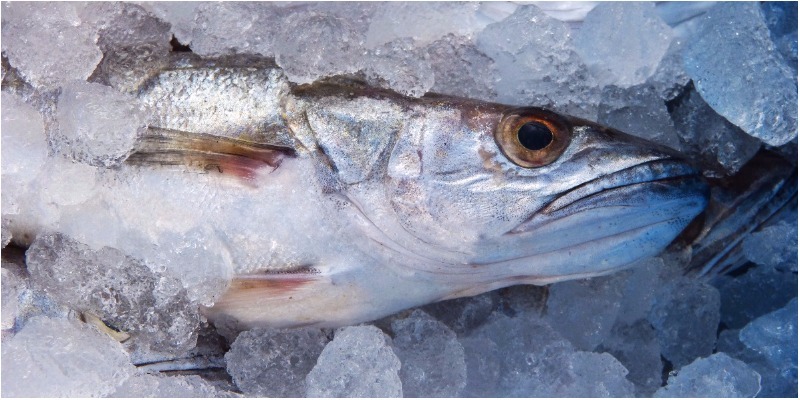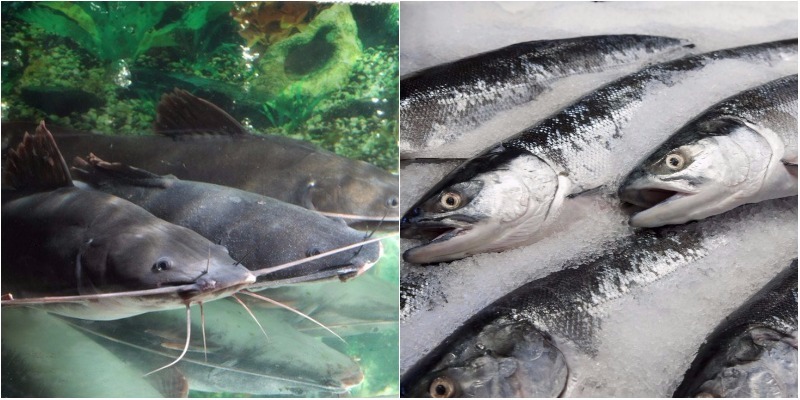Fresh Fish
In the tradition and habit of East Asians in general and Vietnamese in particular, they often go to the market to find fresh fish stalls when they want to eat fish.
This is because the belief is that fresh fish always guarantees nutrition and health for oneself and one’s family.

Frozen Fish
In developed countries with strict control over food hygiene and safety, frozen fish is the first choice when it comes to preparing fish-based dishes for the family.
Frozen fish can be stored for an extended period while still retaining its flavor and nutritional value.

Fresh Fish vs Frozen Fish: Which Is Better?
|
Fresh Fish |
Frozen Fish |
|
|
Pros |
– Fresh flavor, guaranteeing the distinctive taste of fish. – Ensures the nutritional content of the fish. |
– Quickly frozen at -40°C and stored at -18°C to maintain the fish’s nutritional profile. – Packaged aseptically to prevent bacterial infiltration. – Can be stored for a long time without losing nutrients. – Convenient |
|
Cons |
– Fresh fish, despite its delicious taste, may still be susceptible to bacterial contamination. – Cannot be stored for an extended period; if kept too long, it will spoil. |
– Improper thawing can result in a loss of nutrients. – The thawing process leads to a reduction in water-soluble vitamins. – The flavor of frozen fish is not as good as fresh fish, lacking sweetness. |

Which Is the Better Choice: Fresh or Frozen Fish?
Each type has its pros and cons, so it is challenging to say which is better. The choice depends on your personal and family needs. If you want to enjoy the fresh taste of fish and absorb all the nutrients it offers, opt for fresh fish. Buying fish early in the morning ensures optimal flavor and reduces the risk of bacterial contamination.
If you don’t have time to go to the market regularly, frozen fish is a sensible choice. It still retains most of its nutrients and can be stored for a long time.

Notes on Using Fresh and Frozen Fish
Fresh fish cannot be stored for an extended period by freezing at home, so buy only the amount you need for one meal. For optimal preservation, it is best to cook the fish before storing it.
Frozen fish should be thawed by placing it in the refrigerator’s cold storage compartment or at room temperature; avoid using hot water or letting water soak into the fish during thawing.
Once thawed, fish cannot be refrozen.

For more information, see:
References: baocungcau.net, giadinhhaisan.com, baomoi.com
Both frozen and fresh fish have their pros and cons. With this information, we hope you can make informed choices and be a wise homemaker.
8 Common Mistakes People Make with Cutting Boards
Are you using your cutting board correctly? Many Vietnamese households rely on cutting boards in their kitchen, but not everyone knows how to use them properly, especially when it comes to wooden cutting boards. Check out these 8 mistakes to avoid when using a cutting board to ensure both hygiene and safety for everyone in your family.
Is Refrigerated Leftovers Linked to an Increased Risk of Cancer?
Dr. Lam Van Man, Head of Research, Development and Technology Transfer Department of the Institute of Safety Food, has warned of the risk of food poisoning when reheating leftovers from the refrigerator. But what should we be aware of when it comes to the possibility of these leftovers causing cancer? Here, we explore what the experts have to say on the matter and offer some tips for safe eating.
Preserving Leftover Food from the Tet Holiday
With the beginning of the Lunar New Year, many households are stocking up on food to celebrate the festive occasion. While keeping food in the refrigerator is convenient, it can also be harmful to users if not done correctly. We have compiled a few tips to help ensure food remains fresh and safe to consume during Tet.





































